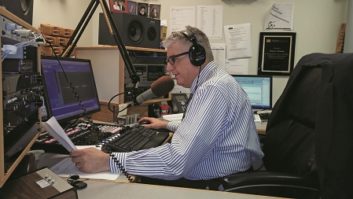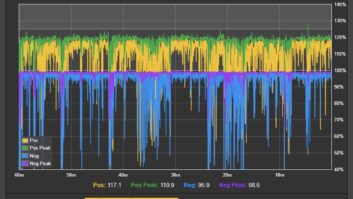
What should console buyers know before shopping these days?
Eric Hoppe is owner of Progressive Concepts and head of sales and marketing for master distribution of D&R products in the United States. This is one in a series of interviews with industry console experts. An earlier version of this article appeared in the RW ebook “Trends in Consoles.”
Radio World: What is the biggest trend in console design?
Eric Hoppe: Today’s consoles have most of the features customers are looking for. The only trend I could possibly see is the need for more network sharing in larger studios. The D&R consoles we handle are for small to mid-size studios that mostly use standalone broadcast mixers. For this reason D&R mixers include integration with music playout software very elegantly.
RW: What demands do you hear from potential buyers?
Hoppe: These days, most music content comes from playout software rather than tapes, vinyl or CDs (though there are still a good number of studios using these other mediums). For that reason, D&R has implemented a USB interface for audio communication in all of their mixers while maintaining both analog and digital ports for interfacing with legacy types of equipment.
[Read: “How to Choose Your Next Radio Console”]
RW: What role does the console play now when someone is planning a new studio?
Hoppe: Today, the mixing console is still the centerpiece of the studio’s operation and thus needs to be very easy to understand and use, because not all studios today employ professional DJs.
RW: What functions and features are being offered on new models that engineers who haven’t bought a console in a while should know about?
Hoppe: They should ask themselves, “What do I really need to make my radio program work?” and not select a console with too many gadgets or features as to complicate its function. Progressive Concepts is very good at helping the client find the right board for their needs.
RW: What will the console of the future look like, if we use one at all?
Hoppe: Generally speaking, DJs still want to use hardware with physical faders to control their content. Some products have the entire control surface on a touchscreen monitor, which I believe is getting a little far removed from the feel of an actual mechanical fader.
RW: How vibrant is the marketplace for analog consoles?
Hoppe: I believe there is still a market for analog only mixers; however, D&R consoles and mixers include a hybrid design of digitally controlled analog audio mixers that provides tremendous value in terms of sound quality and reliability for their price point.
RW: Any suggested best practices for someone who is setting out to make a console system buying decision?
Hoppe: Seek out a supplier who can help you find a mixer or console that fits your needs and who provides friendly service to help you set up your console.







